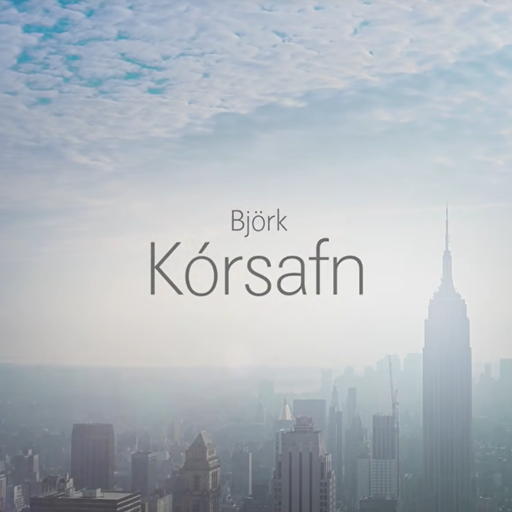
Björk has collaborated with Microsoft to create AI-generated music based on on the changing weather patterns and position of the sun.
Called ‘Kórsafn,’ which means ‘choir archive’ in Icelandic, the composition will be played continuously in the lobby of Sister City, a hotel in new york’s lower east side that opened in the spring of 2019.

As part of the “Dali Lives” experience, the museum utilized machine learning software and a series of screens throughout its exhibition rooms to virtually resurrect the mustached artist.
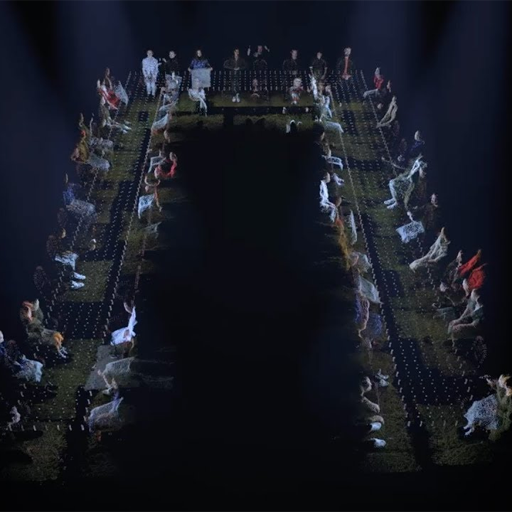
Artificial Intelligence machine created by technologist Ross Goodwin was invited to the Dinner Party as a special guest.
The AI system captured point cloud data of the attendees using computer vision and a depth camera.
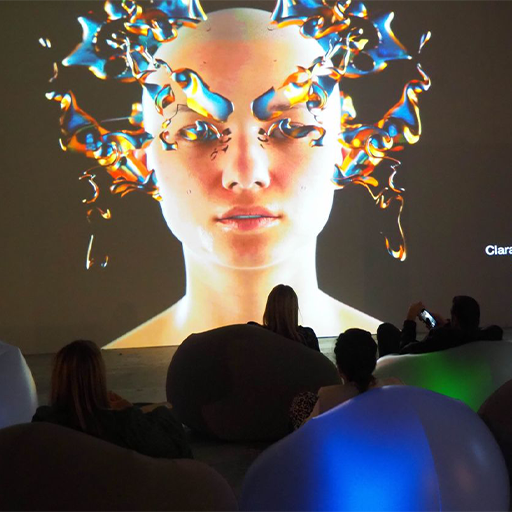
The Contemporary and Digital Art Fair (CADAF) is to launch a new fair in Paris this June coinciding with Vivatech (11-13 June), Europe’s largest technology conference, in an attempt to attract the tech crowd to this emerging and growing area of the art market.
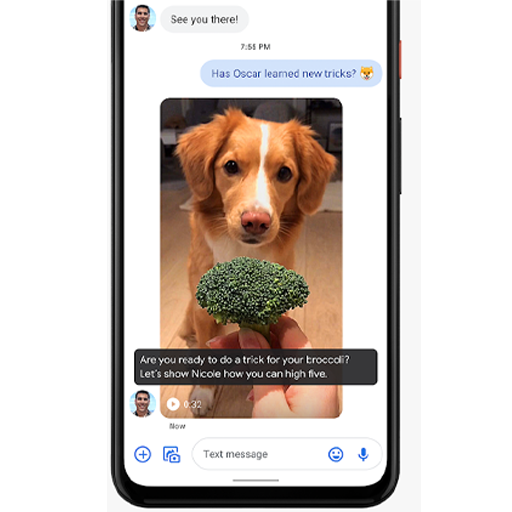
Google’s Live Caption, a new Android feature that automatically captions media playing on your phone. The captioning happens in real time, completely on-device, without using network resources, thus preserving privacy and lowering latency.
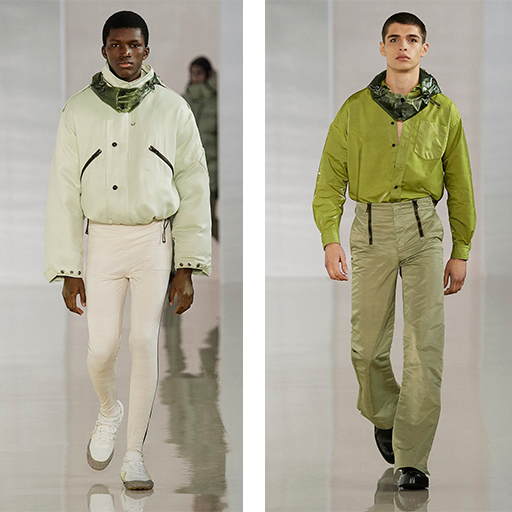
Thousands of pieces from the Acne’s archive were fed into various neural networks and generative systems,where the final product was based on these amalgamated renderings.
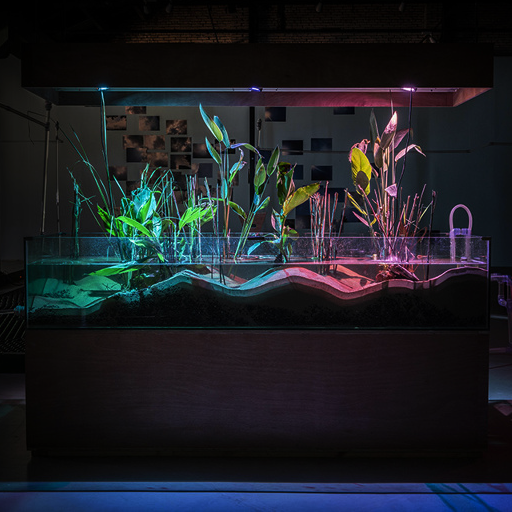
Neural Glitch is an experimentation on GANs by randomly entering deleting or exchanging their trained weights. The training models are based on pix2pix and pix2pixHD, while the custom architecture that the artist built yield the results of it.
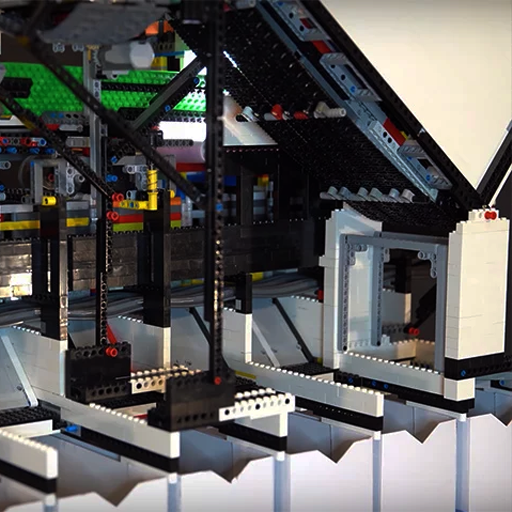
The LEGO sorter uses convolutional neural network to learn to recognize LEGO parts by training on realistic 3D images.
The machine is created by 10.000 lego bricks powered by siy lego motors and nine server motors.
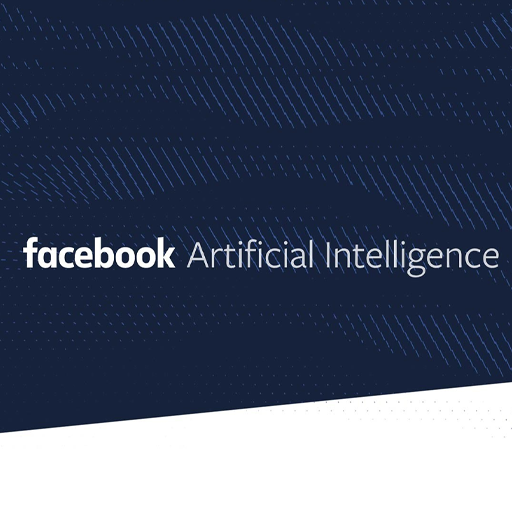
Fashion++ system by Facebook uses a deep image-generation neural network to recognize garments and offer suggestions on what to remove, add, or swap.
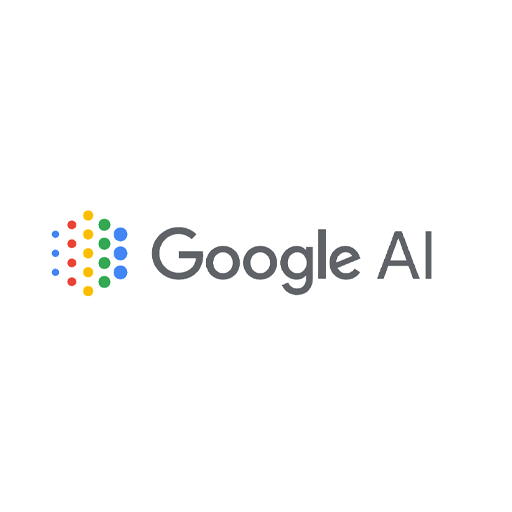
ELECTRA — Efficiently Learning an Encoder that Classifies Token Replacements Accurately — is a novel pre-training method that outperforms existing techniques given the same compute budget.
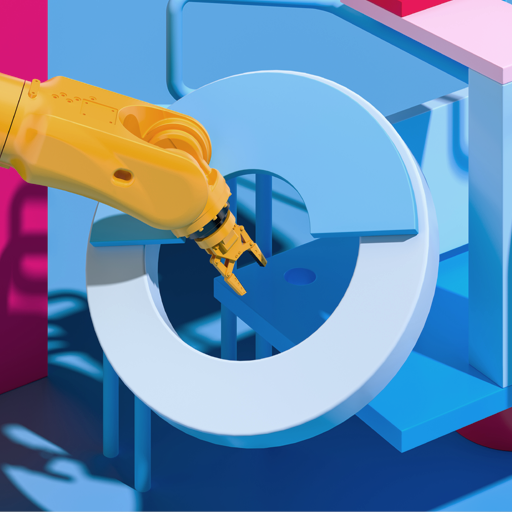
NVIDIA researchers in the Seattle AI Robotics Research Lab developed a human-to-robot handover method in which the robot meets the human halfway. The system, a proof of concept, results in more fluent handovers compared to previous approaches.
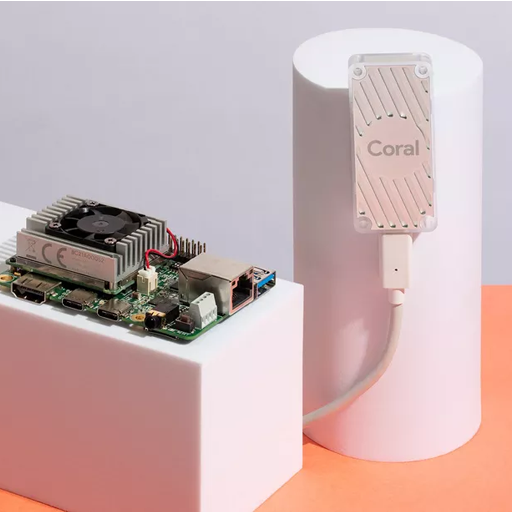
Coral is a platform of hardware and software components from Google which enables to build devices with a local AI, enabling
hardware acceleration for neural networks.
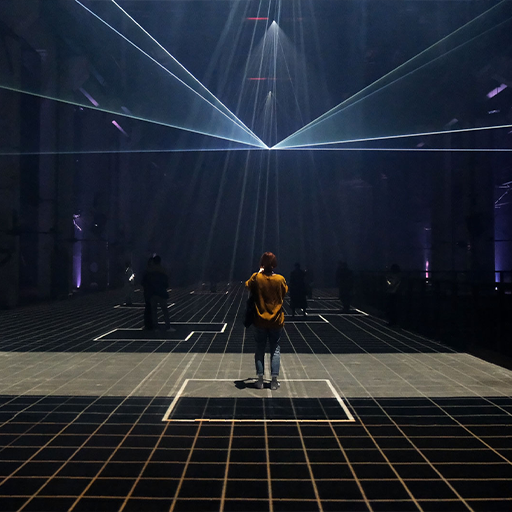
Turkish artist Refik Anadol has taken over Berlin’s iconic nightclub Kraftwerk, turning its concrete rooms into an immersive ecosystem of ‘hallucinogenic’ AI-generated artworks.
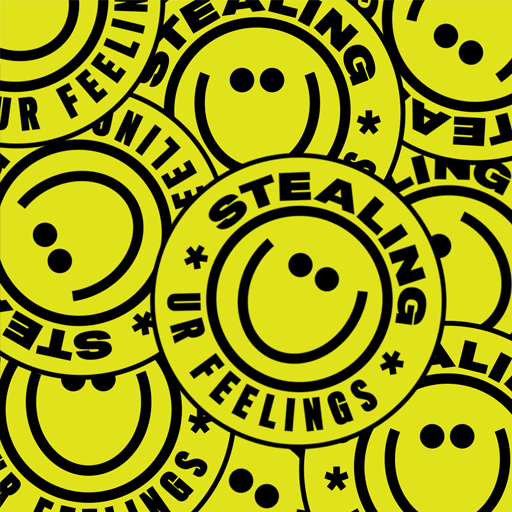
Stealing Ur Feelings Is a machine learning-powered AR movie that knows how racist you are. Created by Noah Levenson .
The project aims to reveal how apps like Snapchat can utilize facial emotion recognition technology to secretly collect data about your emotions to make decisions about your life and promote inequalities.
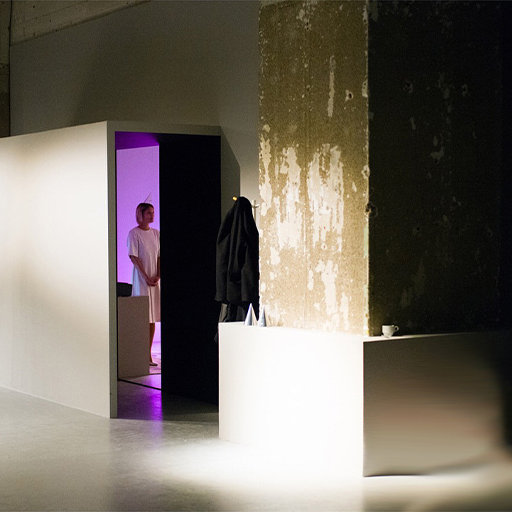
Lauren Lee McCarthy’s 24h Host in collaboration with Casper Schipper creates a performance is a small party that lasts for 24 hours, driven by software that automates the event, embodied in human its’ human host.
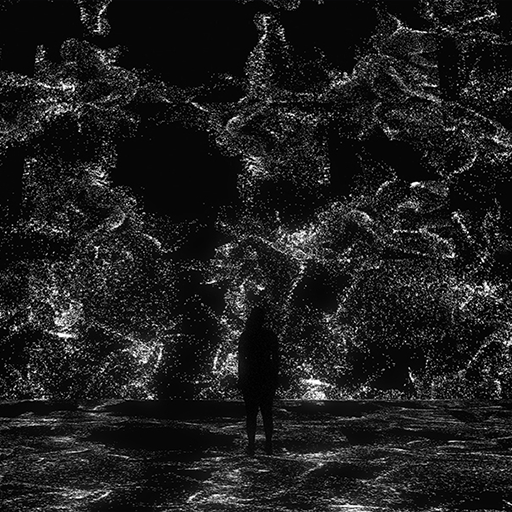
Designed to be an immersive experience, the POETIC AI digital installation uses Artificial Intelligence in the visual creation process: the forms, light, and movement are generated by an algorithm that creates a unique and contemplative digital work.

NVIDIA’s approach achieves pixel-level semantic and instance segmentation of a camera image using a single, multi-task learning deep neural network. This approach enables us to train a panoptic segmentation DNN that understands the scene as a whole versus piecewise.

Memory Lane is being used by Accenture Interactive and Stockholm Exergi to address the challenges of elderly loneliness and provide an innovative social solution through machine learning algorithms.
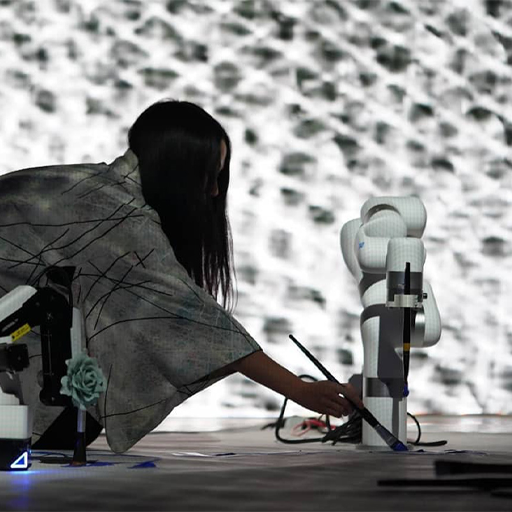
Weng’s performance installation Exquisite Corpus constructs a feedback loop between the human body, the machine body, and ecological bodies. Each thematic chapter showcases an evolving robotic behavior linked to the artist’s explorations of art and AI.
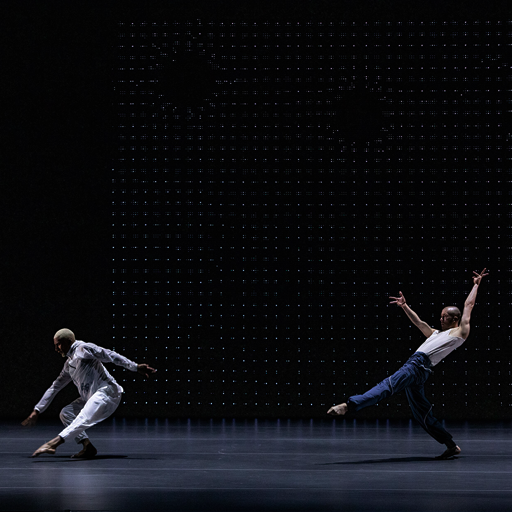
Google Arts & Culture Lab collaborated with Wayne McGregor to turn his archive into a creative tool, using machine learning. The system lets users to select unique poses to create their own piece of choreography.

MediaPipe Objectron’s extending prediction to 3D, allows one to capture an object’s size, position and orientation in the world, leading to a variety of applications in robotics, self-driving vehicles, image retrieval, and augmented reality.
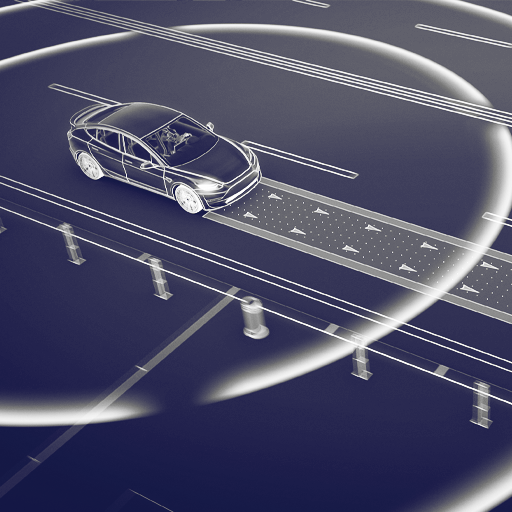
In a paper published the preprint server Arxiv.org, Uber researchers and OpenAI research scientist Jeff Clune describe an algorithm — Enhanced Paired Open-Ended Trailblazer (POET) — that’s open-ended, meaning it can generate its own stream of novel learning opportunities.
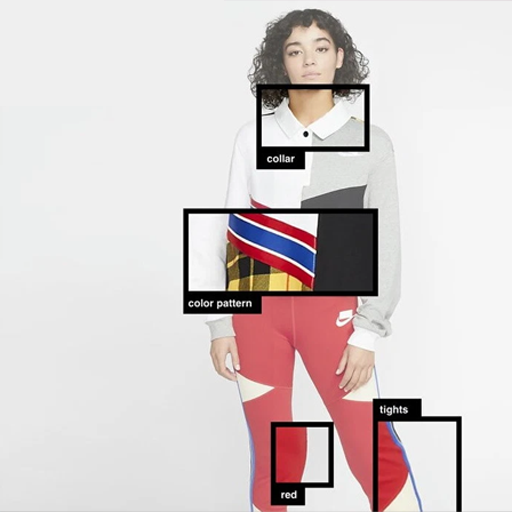
Glisten is a new startup uses image to text networks to define the most important and detailed description of products in any photo.
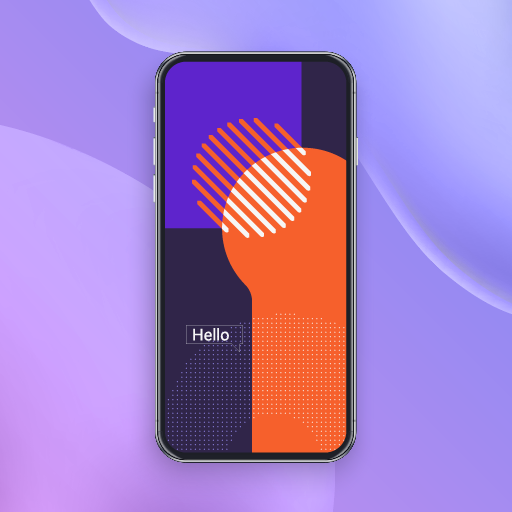
The “Ask the US Open” chat interface created for the the US Open app serves as the tournament’s virtual concierge, guiding patrons through the entirety of the fan experience. The chatbot created could be interacted with natural language and gives tips on “know before you go” to its users.
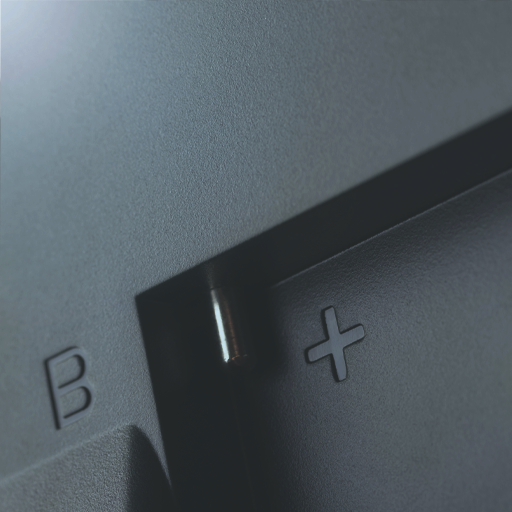
Cuberg is working on developing lighter, safer, more energy-dense batteries, and they’re using a machine learning platform developed by Aionics Technologies to do it faster. AI is used for chemical materials research division makes the process faster and efficient.
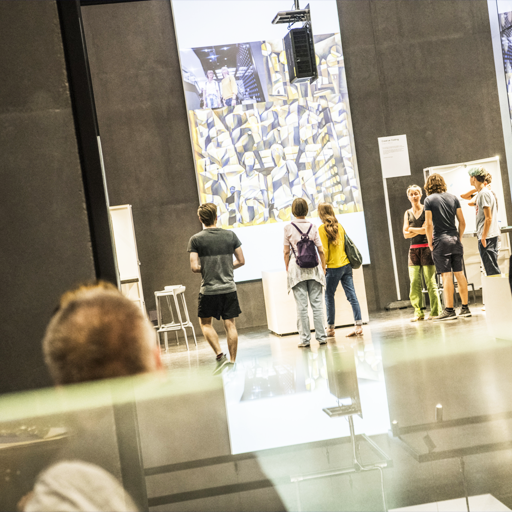
Futurium presents 3 different installations from Gene Kogan including Sketch to Landscape, Style Transfer Mirror and Invisible Berlin.
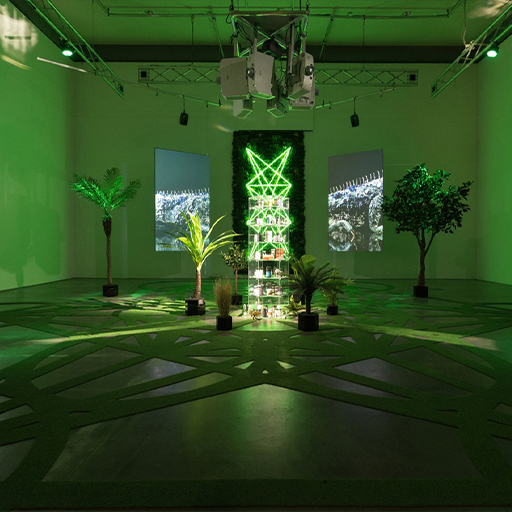
The exhibition of 13 artists, at the de Young Museum in San Francisco, will include works about automation and machine bias. It explores the interrelations between humans, art and AI — the first of its kind in the US.
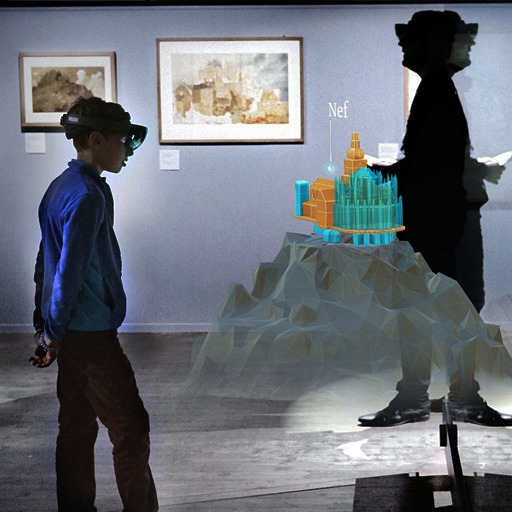
Microsoft plans to use AI to preserve and celebrate traditional cultures. The $10m cultural heritage initiative will focus on finding ways to celebrate people, language, places and historic artifacts, the company says.

BBC is one of the media companies that uses AI to improve their workflow regarding video compression, colorize their historical content, manage video resolutions and meta data. BBC’s GAN application is used to coloriye the historical content within the BBC libraries.
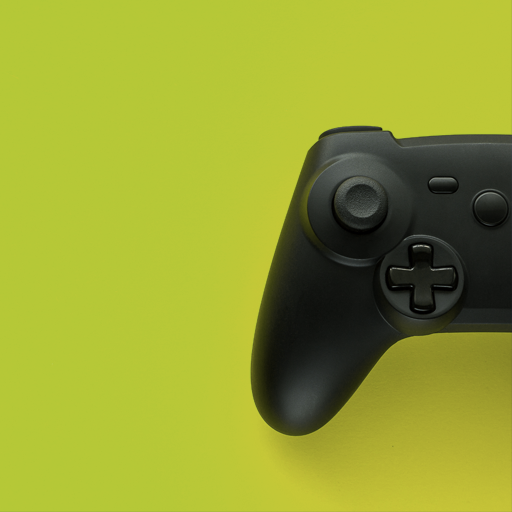
A newly published patent from the World Intellectual Property Organization reveals that Sony is planning to research and develop an artificial intelligence assistant for its upcoming next-gen console, the PlayStation 5.
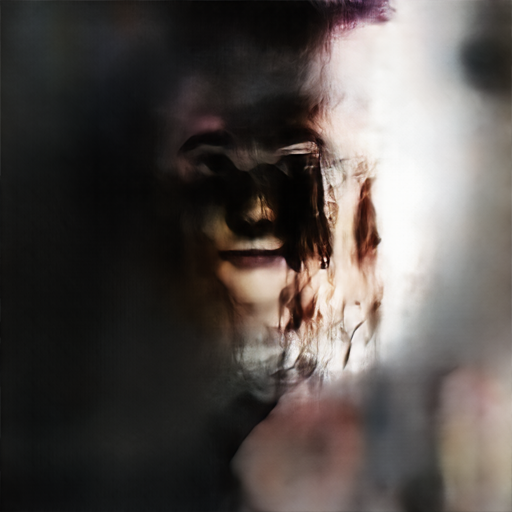
Neural Glitch is an experimentation on GANs by randomly entering deleting or exchanging their trained weights. The training models are based on pix2pix and pix2pixHD, while the custom architecture that the artist built yield the results of it.
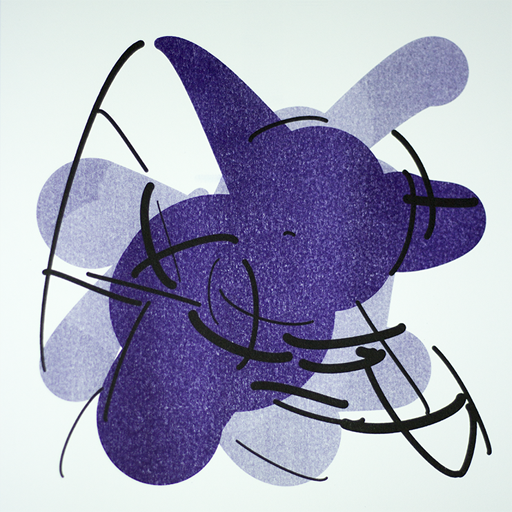
Tom White’s Perception Engines explores the probing ability of neural networks to create abstract images based on real world objects.
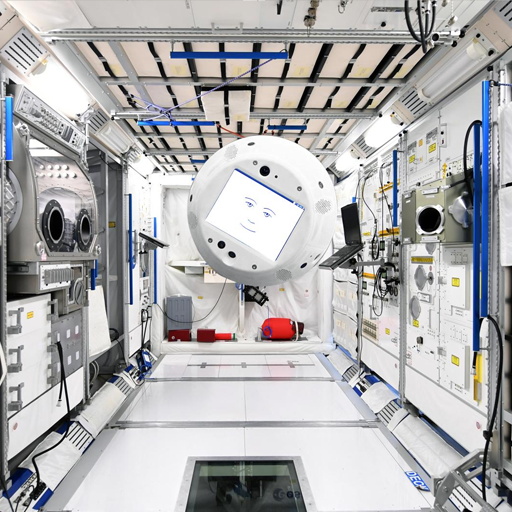
Aeronautics company Airbus has successfully launched an AI assistant called CIMON into space. The artificial intelligence system is the first to arrive on the International Space Station (ISS) and is powered by IBM‘s Watson supercomputer and overseen by the German Aerospace Center (DLR) in cooperation with Airbus.
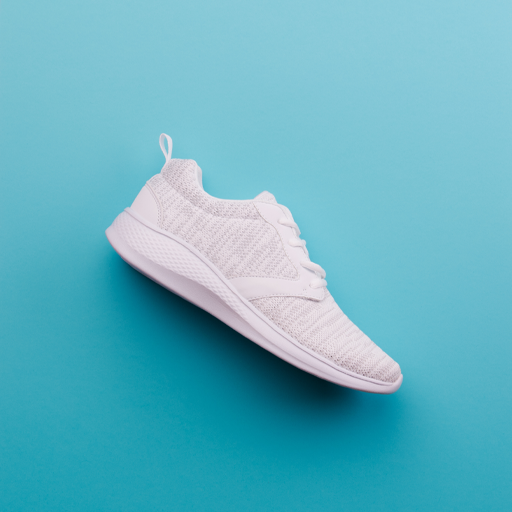
Amazon researchers describe a system that predicts activities like “running” from queries like “Adidas men’s pants.” It could help to improve the quality of search results on Amazon.com, which could enhance the overall Amazon shopping experience.
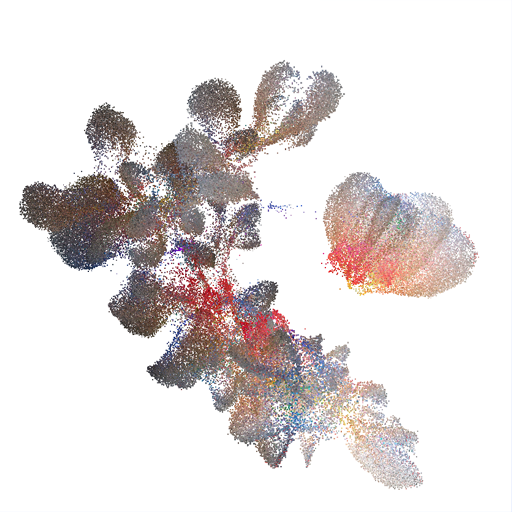
Built with Tensorflow, The Runway Palette lets you discover trends between 2015-2019. The interactive experiment looks over four years of fashion and almost 1,000 designers.
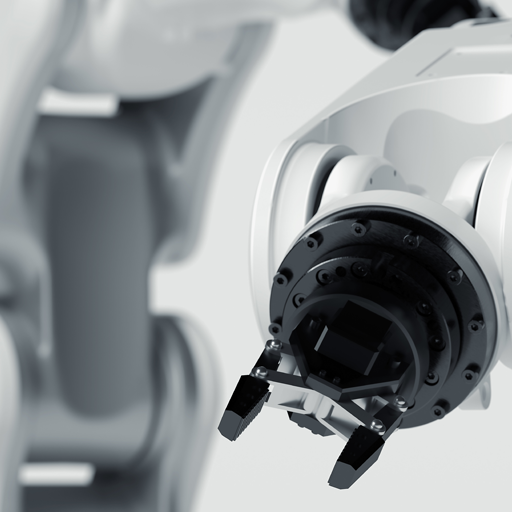
Recent paper from Berkeley Artificial Intelligence Research shows the training of robotic arms through human demonstrations and CycleGAn.
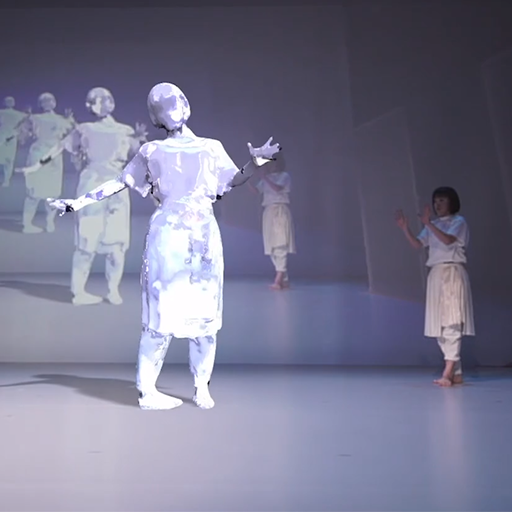
In a Japanese production titled discrete figures, an AI dancer was projected on stage, joining a live dancer for a duet.
The show also presented a partly trained neural network that used recordings of audience members dancing as input data.
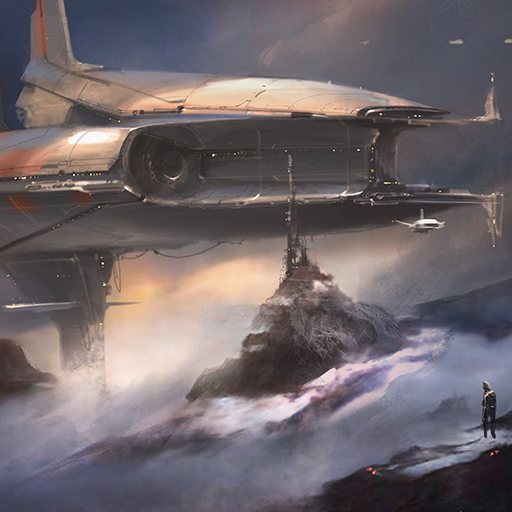
From amateur doodlers to leading digital artists, creators are coming out in droves to produce masterpieces with GauGAN. And the demo has been a smash hit at the SIGGRAPH professional graphics conference as well, winning both the “Best of Show” and “Audience Choice” awards at the conference’s Real Time Live competition.

Björk has collaborated with Microsoft to create AI-generated music based on on the changing weather patterns and position of the sun.
Called ‘Kórsafn,’ which means ‘choir archive’ in Icelandic, the composition will be played continuously in the lobby of Sister City, a hotel in new york’s lower east side that opened in the spring of 2019.

The exhibition of 13 artists, at the de Young Museum in San Francisco, will include works about automation and machine bias. It explores the interrelations between humans, art and AI — the first of its kind in the US.

Lauren Lee McCarthy’s 24h Host in collaboration with Casper Schipper creates a performance is a small party that lasts for 24 hours, driven by software that automates the event, embodied in human its’ human host.

Artificial Intelligence machine created by technologist Ross Goodwin was invited to the Dinner Party as a special guest.
The AI system captured point cloud data of the attendees using computer vision and a depth camera.

Microsoft plans to use AI to preserve and celebrate traditional cultures. The $10m cultural heritage initiative will focus on finding ways to celebrate people, language, places and historic artifacts, the company says.

NVIDIA’s approach achieves pixel-level semantic and instance segmentation of a camera image using a single, multi-task learning deep neural network. This approach enables us to train a panoptic segmentation DNN that understands the scene as a whole versus piecewise.

Google’s Live Caption, a new Android feature that automatically captions media playing on your phone. The captioning happens in real time, completely on-device, without using network resources, thus preserving privacy and lowering latency.

A newly published patent from the World Intellectual Property Organization reveals that Sony is planning to research and develop an artificial intelligence assistant for its upcoming next-gen console, the PlayStation 5.

Weng’s performance installation Exquisite Corpus constructs a feedback loop between the human body, the machine body, and ecological bodies. Each thematic chapter showcases an evolving robotic behavior linked to the artist’s explorations of art and AI.

Neural Glitch is an experimentation on GANs by randomly entering deleting or exchanging their trained weights. The training models are based on pix2pix and pix2pixHD, while the custom architecture that the artist built yield the results of it.

Tom White’s Perception Engines explores the probing ability of neural networks to create abstract images based on real world objects.

MediaPipe Objectron’s extending prediction to 3D, allows one to capture an object’s size, position and orientation in the world, leading to a variety of applications in robotics, self-driving vehicles, image retrieval, and augmented reality.

Fashion++ system by Facebook uses a deep image-generation neural network to recognize garments and offer suggestions on what to remove, add, or swap.

Amazon researchers describe a system that predicts activities like “running” from queries like “Adidas men’s pants.” It could help to improve the quality of search results on Amazon.com, which could enhance the overall Amazon shopping experience.

Glisten is a new startup uses image to text networks to define the most important and detailed description of products in any photo.

NVIDIA researchers in the Seattle AI Robotics Research Lab developed a human-to-robot handover method in which the robot meets the human halfway. The system, a proof of concept, results in more fluent handovers compared to previous approaches.

Recent paper from Berkeley Artificial Intelligence Research shows the training of robotic arms through human demonstrations and CycleGAn.

Cuberg is working on developing lighter, safer, more energy-dense batteries, and they’re using a machine learning platform developed by Aionics Technologies to do it faster. AI is used for chemical materials research division makes the process faster and efficient.

Turkish artist Refik Anadol has taken over Berlin’s iconic nightclub Kraftwerk, turning its concrete rooms into an immersive ecosystem of ‘hallucinogenic’ AI-generated artworks.

From amateur doodlers to leading digital artists, creators are coming out in droves to produce masterpieces with GauGAN. And the demo has been a smash hit at the SIGGRAPH professional graphics conference as well, winning both the “Best of Show” and “Audience Choice” awards at the conference’s Real Time Live competition.

Stealing Ur Feelings Is a machine learning-powered AR movie that knows how racist you are. Created by Noah Levenson .
The project aims to reveal how apps like Snapchat can utilize facial emotion recognition technology to secretly collect data about your emotions to make decisions about your life and promote inequalities.

As part of the “Dali Lives” experience, the museum utilized machine learning software and a series of screens throughout its exhibition rooms to virtually resurrect the mustached artist.

Designed to be an immersive experience, the POETIC AI digital installation uses Artificial Intelligence in the visual creation process: the forms, light, and movement are generated by an algorithm that creates a unique and contemplative digital work.

The Contemporary and Digital Art Fair (CADAF) is to launch a new fair in Paris this June coinciding with Vivatech (11-13 June), Europe’s largest technology conference, in an attempt to attract the tech crowd to this emerging and growing area of the art market.

BBC is one of the media companies that uses AI to improve their workflow regarding video compression, colorize their historical content, manage video resolutions and meta data. BBC’s GAN application is used to coloriye the historical content within the BBC libraries.

Memory Lane is being used by Accenture Interactive and Stockholm Exergi to address the challenges of elderly loneliness and provide an innovative social solution through machine learning algorithms.

Thousands of pieces from the Acne’s archive were fed into various neural networks and generative systems,where the final product was based on these amalgamated renderings.

Neural Glitch is an experimentation on GANs by randomly entering deleting or exchanging their trained weights. The training models are based on pix2pix and pix2pixHD, while the custom architecture that the artist built yield the results of it.

Google Arts & Culture Lab collaborated with Wayne McGregor to turn his archive into a creative tool, using machine learning. The system lets users to select unique poses to create their own piece of choreography.

The LEGO sorter uses convolutional neural network to learn to recognize LEGO parts by training on realistic 3D images.
The machine is created by 10.000 lego bricks powered by siy lego motors and nine server motors.

Aeronautics company Airbus has successfully launched an AI assistant called CIMON into space. The artificial intelligence system is the first to arrive on the International Space Station (ISS) and is powered by IBM‘s Watson supercomputer and overseen by the German Aerospace Center (DLR) in cooperation with Airbus.

In a paper published the preprint server Arxiv.org, Uber researchers and OpenAI research scientist Jeff Clune describe an algorithm — Enhanced Paired Open-Ended Trailblazer (POET) — that’s open-ended, meaning it can generate its own stream of novel learning opportunities.

ELECTRA — Efficiently Learning an Encoder that Classifies Token Replacements Accurately — is a novel pre-training method that outperforms existing techniques given the same compute budget.

Built with Tensorflow, The Runway Palette lets you discover trends between 2015-2019. The interactive experiment looks over four years of fashion and almost 1,000 designers.

The “Ask the US Open” chat interface created for the the US Open app serves as the tournament’s virtual concierge, guiding patrons through the entirety of the fan experience. The chatbot created could be interacted with natural language and gives tips on “know before you go” to its users.

Coral is a platform of hardware and software components from Google which enables to build devices with a local AI, enabling
hardware acceleration for neural networks.

In a Japanese production titled discrete figures, an AI dancer was projected on stage, joining a live dancer for a duet.
The show also presented a partly trained neural network that used recordings of audience members dancing as input data.

Futurium presents 3 different installations from Gene Kogan including Sketch to Landscape, Style Transfer Mirror and Invisible Berlin.

Björk has collaborated with Microsoft to create AI-generated music based on on the changing weather patterns and position of the sun.
Called ‘Kórsafn,’ which means ‘choir archive’ in Icelandic, the composition will be played continuously in the lobby of Sister City, a hotel in new york’s lower east side that opened in the spring of 2019.

Stealing Ur Feelings Is a machine learning-powered AR movie that knows how racist you are. Created by Noah Levenson .
The project aims to reveal how apps like Snapchat can utilize facial emotion recognition technology to secretly collect data about your emotions to make decisions about your life and promote inequalities.

The exhibition of 13 artists, at the de Young Museum in San Francisco, will include works about automation and machine bias. It explores the interrelations between humans, art and AI — the first of its kind in the US.

As part of the “Dali Lives” experience, the museum utilized machine learning software and a series of screens throughout its exhibition rooms to virtually resurrect the mustached artist.

Lauren Lee McCarthy’s 24h Host in collaboration with Casper Schipper creates a performance is a small party that lasts for 24 hours, driven by software that automates the event, embodied in human its’ human host.

Artificial Intelligence machine created by technologist Ross Goodwin was invited to the Dinner Party as a special guest.
The AI system captured point cloud data of the attendees using computer vision and a depth camera.

Designed to be an immersive experience, the POETIC AI digital installation uses Artificial Intelligence in the visual creation process: the forms, light, and movement are generated by an algorithm that creates a unique and contemplative digital work.

Microsoft plans to use AI to preserve and celebrate traditional cultures. The $10m cultural heritage initiative will focus on finding ways to celebrate people, language, places and historic artifacts, the company says.

The Contemporary and Digital Art Fair (CADAF) is to launch a new fair in Paris this June coinciding with Vivatech (11-13 June), Europe’s largest technology conference, in an attempt to attract the tech crowd to this emerging and growing area of the art market.

NVIDIA’s approach achieves pixel-level semantic and instance segmentation of a camera image using a single, multi-task learning deep neural network. This approach enables us to train a panoptic segmentation DNN that understands the scene as a whole versus piecewise.

BBC is one of the media companies that uses AI to improve their workflow regarding video compression, colorize their historical content, manage video resolutions and meta data. BBC’s GAN application is used to coloriye the historical content within the BBC libraries.

Google’s Live Caption, a new Android feature that automatically captions media playing on your phone. The captioning happens in real time, completely on-device, without using network resources, thus preserving privacy and lowering latency.

Memory Lane is being used by Accenture Interactive and Stockholm Exergi to address the challenges of elderly loneliness and provide an innovative social solution through machine learning algorithms.

A newly published patent from the World Intellectual Property Organization reveals that Sony is planning to research and develop an artificial intelligence assistant for its upcoming next-gen console, the PlayStation 5.

Thousands of pieces from the Acne’s archive were fed into various neural networks and generative systems,where the final product was based on these amalgamated renderings.

Weng’s performance installation Exquisite Corpus constructs a feedback loop between the human body, the machine body, and ecological bodies. Each thematic chapter showcases an evolving robotic behavior linked to the artist’s explorations of art and AI.

Neural Glitch is an experimentation on GANs by randomly entering deleting or exchanging their trained weights. The training models are based on pix2pix and pix2pixHD, while the custom architecture that the artist built yield the results of it.

Neural Glitch is an experimentation on GANs by randomly entering deleting or exchanging their trained weights. The training models are based on pix2pix and pix2pixHD, while the custom architecture that the artist built yield the results of it.

Google Arts & Culture Lab collaborated with Wayne McGregor to turn his archive into a creative tool, using machine learning. The system lets users to select unique poses to create their own piece of choreography.

Tom White’s Perception Engines explores the probing ability of neural networks to create abstract images based on real world objects.

The LEGO sorter uses convolutional neural network to learn to recognize LEGO parts by training on realistic 3D images.
The machine is created by 10.000 lego bricks powered by siy lego motors and nine server motors.

MediaPipe Objectron’s extending prediction to 3D, allows one to capture an object’s size, position and orientation in the world, leading to a variety of applications in robotics, self-driving vehicles, image retrieval, and augmented reality.

Aeronautics company Airbus has successfully launched an AI assistant called CIMON into space. The artificial intelligence system is the first to arrive on the International Space Station (ISS) and is powered by IBM‘s Watson supercomputer and overseen by the German Aerospace Center (DLR) in cooperation with Airbus.

Fashion++ system by Facebook uses a deep image-generation neural network to recognize garments and offer suggestions on what to remove, add, or swap.

In a paper published the preprint server Arxiv.org, Uber researchers and OpenAI research scientist Jeff Clune describe an algorithm — Enhanced Paired Open-Ended Trailblazer (POET) — that’s open-ended, meaning it can generate its own stream of novel learning opportunities.

Amazon researchers describe a system that predicts activities like “running” from queries like “Adidas men’s pants.” It could help to improve the quality of search results on Amazon.com, which could enhance the overall Amazon shopping experience.

ELECTRA — Efficiently Learning an Encoder that Classifies Token Replacements Accurately — is a novel pre-training method that outperforms existing techniques given the same compute budget.

Glisten is a new startup uses image to text networks to define the most important and detailed description of products in any photo.

Built with Tensorflow, The Runway Palette lets you discover trends between 2015-2019. The interactive experiment looks over four years of fashion and almost 1,000 designers.

NVIDIA researchers in the Seattle AI Robotics Research Lab developed a human-to-robot handover method in which the robot meets the human halfway. The system, a proof of concept, results in more fluent handovers compared to previous approaches.

The “Ask the US Open” chat interface created for the the US Open app serves as the tournament’s virtual concierge, guiding patrons through the entirety of the fan experience. The chatbot created could be interacted with natural language and gives tips on “know before you go” to its users.

Recent paper from Berkeley Artificial Intelligence Research shows the training of robotic arms through human demonstrations and CycleGAn.

Coral is a platform of hardware and software components from Google which enables to build devices with a local AI, enabling
hardware acceleration for neural networks.

Cuberg is working on developing lighter, safer, more energy-dense batteries, and they’re using a machine learning platform developed by Aionics Technologies to do it faster. AI is used for chemical materials research division makes the process faster and efficient.

In a Japanese production titled discrete figures, an AI dancer was projected on stage, joining a live dancer for a duet.
The show also presented a partly trained neural network that used recordings of audience members dancing as input data.

Turkish artist Refik Anadol has taken over Berlin’s iconic nightclub Kraftwerk, turning its concrete rooms into an immersive ecosystem of ‘hallucinogenic’ AI-generated artworks.

Futurium presents 3 different installations from Gene Kogan including Sketch to Landscape, Style Transfer Mirror and Invisible Berlin.

From amateur doodlers to leading digital artists, creators are coming out in droves to produce masterpieces with GauGAN. And the demo has been a smash hit at the SIGGRAPH professional graphics conference as well, winning both the “Best of Show” and “Audience Choice” awards at the conference’s Real Time Live competition.